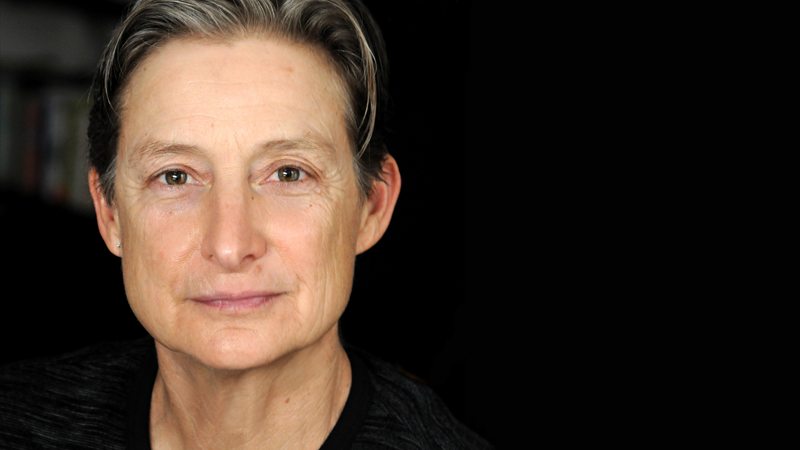Rethinking Gender—Judith Butler
Episode #8 of the course Women in philosophy by Will Buckingham
Today’s philosopher is Judith Butler, one of the leading contemporary thinkers on questions of gender. Butler’s early education was in Jewish ethics, but she went on to study philosophy, completing her PhD at Yale. Judith Butler’s influence on how we think about gender is far-reaching. This influence rests in particular on her book, Gender Trouble: Feminism and the Subversion of Identity. To anybody who has followed debates and discussions about gender online over the previous few years, her influence will be clear.
Making Trouble, Being in Trouble
In the opening of Gender Trouble, Butler claims that when it comes to gender, trouble is inevitable. If gender is always something troubling or troublesome, the task is this: to work out “how best to make [trouble], what best way to be in it.”
Here, we should step back to look at a common distinction, one that Butler calls into question. This is the distinction between “sex” (based in our biology and anatomy) and “gender” (based on our social roles). It is often considered that our sex is “natural” and that gender is “cultural.” But one of Butler’s main claims in Gender Trouble is that this nature/culture distinction does not hold water. For Butler, both sex and gender are culturally constructed. One way of seeing this is that Butler is asking about the hidden cultural assumptions that may underlie what we take as the “natural” or “biological facts” about sex difference.
If both gender and sex are culturally constructed, then it is simply not the case that there are two “natural” kinds of human—men and women. But this implies that we need to rethink any feminist philosophies that are rooted in the idea of a natural distinction between men and women.
Also, if there is not a culture-free “natural” underpinning to the way we think about gender, then gender can be a much more “flexible, free floating” thing. This is why Butler’s work has had huge influence in Queer theory and in the development of contemporary ideas of gender fluidity.
Gender Performativity
This raises the question of how gender is constructed if it is not simply born out of “natural” distinctions of sex. For Butler, gender is tied up with what she calls performativity. Gender is something that we enact. It is created and recreated through how we act.
However, we don’t enact gender freely. Instead, we are constrained by our cultural conditioning and the power relationships of the culture of which we are a part. Enactment is not necessarily conscious or freely decided upon. For Butler, even something as intimate as our desires may be both forms of performative enactment that we find ourselves engaged in unconsciously due to our cultural conditioning.
Activism and Criticism
Judith Butler’s philosophy has been widely influential. It has also broken out of the professional world of philosophy to influence forms of Queer politics and activism, and Butler herself has been an active campaigner for gay, lesbian, and transgender rights. But it has not been without its critics.
One of Butler’s major critics has been Martha Nussbaum. Nussbaum argues that Butler’s “proud neglect of the material side of life” is a “fatal blindness.” For Nussbaum, the argument that nature is merely a cultural construct means that Butler overlooks a mass of empirical, scientifically informed evidence. For Nussbaum, it is precisely this kind of evidence that will allow us to address the gender troubles in which we find ourselves. We need to find a middle position where we can take culture into account, without abandoning more subtle and scientifically well-informed understandings about human brains, bodies, and societies.
If today we have been talking about the power relationships at play in our culture, tomorrow we are moving on to explore another dimension of this: the question of the point at which gender and race intersect.
Learn Something New Every Day
Get smarter with 10-day courses delivered in easy-to-digest emails every morning. Join over 400,000 lifelong learners today!
Further learning
Video: Judith Butler talking about gender performativity
Reading: The Professor of Parody by Martha Nussbaum—an essay on Judith Butler.
Share with friends

